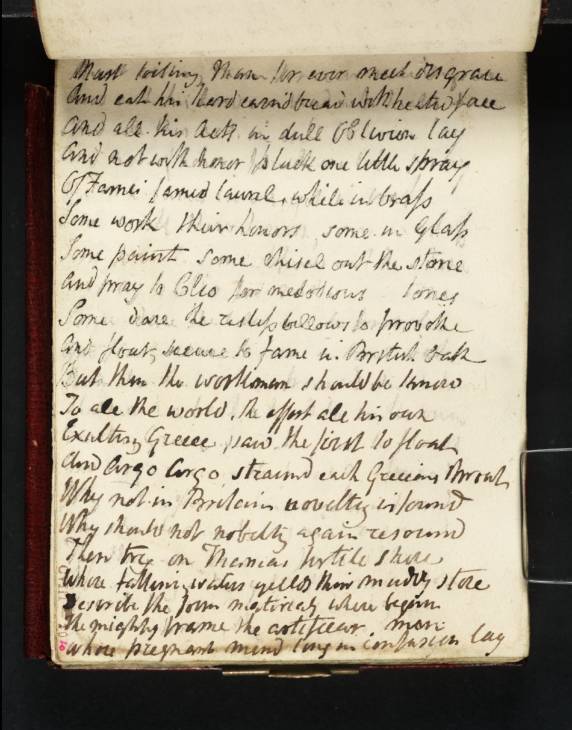Must toiling Man for ever meet disgrace
And eat his hard earn’d bread with heated face
And all his acts in dull Oblivion lay
And not with honor pluck one little spray
Of Fame’s famed laurel, while in brass
Some work their honors some in Glass
Some paint some chisel out the stone
And pray to Clio for melodious tones
Some dare the restless billows to provoke
And float secure to fame in British Oak
But then the workman should be know
To all the world the effort all his own
Exulting Greece, saw the first to float
And Argo Argo strained each Grecians throat
Why not in Britain novelty is found
Why should not novelty again resound
Then try on Thamias fertile shore
Where falling waters yields their muddy store
Describe the form materials where began
The mighty frame the artificer man
Whose pregnant mind long in confusion lay
1
